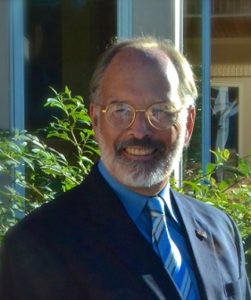This is part two of a two-part series. You can read the first part here.
Obadiah Smith, a fifty-nine year-old shoemaker from Williamsburg, stood before Clermont County Judge John Morris on May 14, 1818. He swore an oath upon “the Holy Evangelists” (an oath adopted from England) to tell the truth about his military service during the American Revolutionary War. He hoped that he would be awarded an $8.00 monthly pension. 
He told the judge that he enlisted as a private in the 4th New York Infantry Regiment of the Continental Army. Smith was engaged in several of skirmishes around the White Plains, New York area. He later fought under General Horatio Gates in the decisive American victory at the Battle of Saratoga in October of 1777.
Smith, like many of his comrades, was often sick, sometimes to the point of being unfit for duty. Dysentery and other intestinal ailments, caused by poor food, lack of adequate sanitation and close-quarters living, were common complaints. They also had to deal with the ancient scourge of smallpox.
Smallpox was a horrible disease, frequently killing as many as 50 percent of those it struck. Survivors were sometimes blinded by the contagion and left with pock marks on their face. An epidemic during the Revolutionary War killed an estimated 130,000 people in North America.
George Washington was very familiar with the disease. He lived through a mild case of smallpox in 1751 that left him with a few pock marks on his nose and a lifetime immunity. He knew that the British were using the virus as a biological weapon to decimate the American Army.
The general considered inoculating the army, but it was risky. Each person who was inoculated developed a mild case of the disease. He certainly remembered his debilitating experience fighting the infection twenty-five years before. If the British had attacked while his army was suffering through the aftermath of the inoculation, the war would have been lost. Inoculation was also outlawed in America.
Washington considered the benefits to be worth the risks and ordered all 40,000 of his men to be inoculated-the first mass military vaccination in history. That decision is considered to be one of the most consequential of his military career. Private Smith was ordered to “the barracks” at Fishkill, New York in June or July of 1777 to get his inoculation. Smith was sick with a mild case of smallpox and other unnamed ailments for most of the summer.
Veterans at this time had to show a financial need in order to receive the pension. Some provided an inventory of their assets and liabilities. Among the possessions of Virginia-born John Aldridge presented to the court were: two horses- $35.00, one pig-.25 cents, five knives and forks-$1.00, one gun-$6.00 and one cow and two calves-$10.00. He claimed he owed unnamed people $55.00 while “sundry” people owed him $32.00.
Smith did not produce such a list when he applied for the pension in March. He did assert that he was in “reduced circumstances” and that he needed the assistance of the government to live. Smith received his pension.
Dr. John C, Dunlavy of Williamsburg wrote a letter to the War Department disputing Smith’s claim to the pension. Dunlavy claimed that Smith had conveyed to a woman with whom he lived, not his wife, real estate worth $700.00. (Smith’s wife Lucy filed for divorce in March 1821.) Dunlavy further claimed that Smith did so to defraud the government. He acknowledged that Smith lived with two young daughters, probably of the woman with whom he lived. If so, they are illegitimate. Dunlavy claimed that Smith was healthy and able bodied.
Based upon Dunlavy’s letter, the War Department suspended Smith’s pension.
Smith’s friends rallied to his cause. Justices of the Peace George Ely and David Morris, Daniel Kain- Colonel of the Militia- and Prosecuting Attorney T.S. Foote wrote a letter to the War Department declaring Smith to be “a credible witness and a man of truth and veracity.” Dr. Ralph Sharp and cabinet maker Job Stockton signed an affidavit upon “the holy evangelists of Almighty God” that Smith was a man of good character who did not fraudulently convey any property. They questioned Dunlavy’s character and motives in making the allegations. Another affidavit, signed by seven men of Williamsburg, claimed that Smith was unable to support himself. Stockton sent a final appeal to the government, stating: “Doctor John Dunlavy was a violent and personal enemy of said Smith.”
In July of 1823 Smith sent a letter asking the War Department as to the status of his claim, writing: “My pressing need of pecuniary {aid} at this time urges Me in the Most Imperious Maner to Make this application for an answer.” He wished that his two enemies who accused him of fraudulent behavior “… would have Dragged Me before a Trybuneral that have Juris Diction of High Crimes and Misdemenors-Instead of Perplexing the Secretary of War.”
This letter ended the Clermont County part of the saga. Apparently Smith moved from the county. It is not known if Smith ever received his $8.00 per month pension.
Gary Knepp is Clermont County’s honorary historian. He is a practicing attorney who lives in Miami Township. Knepp’s website is www.garyknepp.com.
